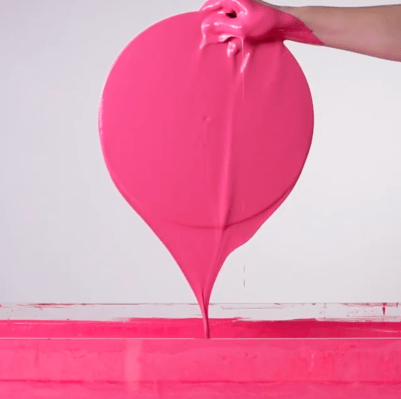Deutsche Telekom is perhaps best known around the world as the telco behind mobile carrier T-Mobile, but today it’s making an appearance in a lesser-known yet also regular role: trademark troll.
The company’s German lawyers have sent a letter to Lemonade, the AI-based insurance startup headquartered in New York, demanding it cease using magenta — a color that appears across Lemonade’s logo and marketing material — globally. DT also filed for and received an injunction on Lemonade operating in Germany — a block Lemonade has temporarily worked around by dropping magenta for the moment in the country.
But that is not the whole story: Lemonade, which said the letter came in the wake of its launch in Germany this summer, said that it will put up a fight. Today, it filed a motion with EUIPO (the European intellectual property office) to invalidate DT’s claim to a trademark on magenta; and it has further petitioned the German trademark office to remove DT’s claim to holding a right on magenta in the insurance sector.
“We thought this seemed like a massive over-reach,” Daniel Schreiber, Lemonade’s CEO and cofounder, said in an interview. “Then when we started digging, we found that they’ve been doing this across a number of countries, covering big companies to the smallest businesses. It’s mind boggling. We are in insurance.”
To be sure, this is far from Deutsche Telekom’s first efforts to defend its pink hue. The company has gone after carriers like AT&T and Telia, our sister publication Engadget (before the days when it was owned by another DT competitor, Verizon), Apple device management specialist dataJar, invoice services provider Compello, and a now-defunct smartwatch maker.
The track record so far should give Lemonade some hope. In some cases — such as Telia’s and dataJar’s — DT has lost and magenta has run free. In others, DT has had the upper hand, and has danced a little in celebration:
Who’s the bully now, John?
“We feel like we’re a character in a Disney movie, fighting a baddie,” Schreiber said.
But as with DT, sometimes Goliath is actually David, depending on who is doing the punching up or down. That is to say, Lemonade is a stranger to filing suits to defend its product and brand, either. The company was in a brief dispute over IP infringement with WeFox — a legal fight that appears now to be getting settled.
Lemonade’s CEO said that although DT’s letter specifies that the startup stop using magenta globally, he thinks that the carrier waited until the startup entered Germany to take legal action because it put the startup squarely in German jurisdiction, where DT might get treated more favorably because of its ubiquity. (Indeed, the cases where it has lost have all be outside of its home market.)
Schreiber defended the use of magenta for Lemonade — incidentally, not typically a drink that is magenta — as part of its bigger ethos.
“We’ve been pink since launch because we wanted to give a sense of being trusting and fun and approachable. It’s a very prominent part of our brand, ” he said. “The backdrop to that is the monochrome of our industry, insurance.”
The company based more than just its logo on the color. Since being founded in 2015, all of its promotional materials have featured magenta, and its social media campaigns on services like Instagram are built around the color, with various household and other everyday objects dipped into magenta paint. (This is a reference to Lemonade’s insurance services: it offers home owner and rental insurance services that cover all your belongings.)
Lemonade’s Instagram effort in particular has gone somewhat viral: the company says that its posts have collectively been viewed 18 million times. Lemonade will now try to turn up the volume on that, with a new effort to defend its use of magenta with a #freethepink hashtag. As the saying goes, when life hands you lemons…
T-Mobile’s specific form of magenta that it has trademarked for its brand is RAL 4010, a color that is not exactly the same as Lemonade’s, Schreiber said. T-Mobile has been going after a number of companies using colors close to this as well.
One issue that might make this case not so clear cut is that Detsche Telekom, it seems, dabbles in insurance, both on services like cybersecurity, as well as on tech and specifically devices — carriers, of course, being major resellers of handsets. Not the same as household insurance, but perhaps an area that might see the two moving closer together as Lemonade grows.
And growth is something that is likely to keep happening. Schreiber said that while the company will not disclose any plans today, it will be expanding into more regions within the US and Europe, where it is now active, as well as further afield, and it is also considering entering into more product lines beyond home owners and home renters insurance.
Lemonade earlier this year raised $300 million on a $2 billion valuation led by the SoftBank Group — most of which, Schreiber said, is still in the bank.
Meanwhile, a small note on PitchBook dated October 28 noted that the company is now starting to look at a further $500 million fundraise, although if this is true, it’s very early days. “News to me,” Schreiber said when I asked him about it.
We’re reaching out to Deutsche Telekom and will update this post as we learn more.
